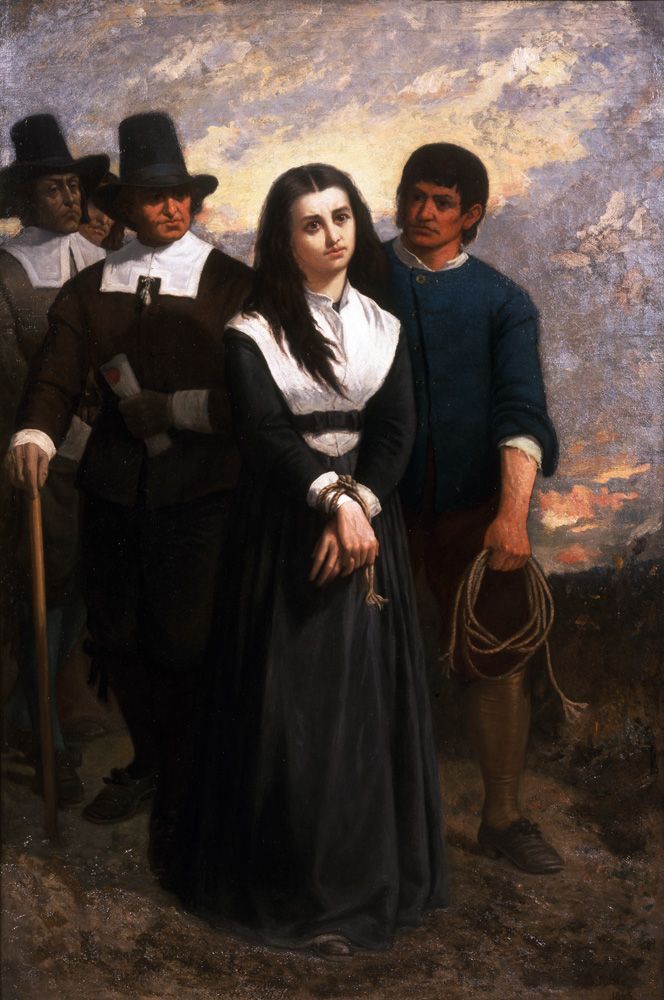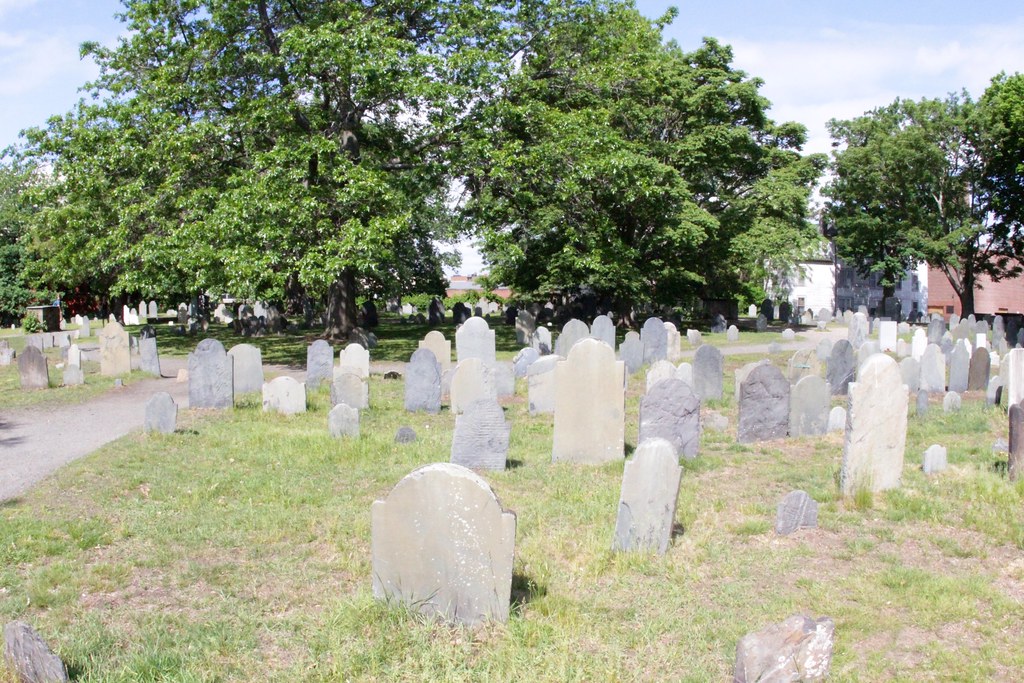Justice came for Elizabeth Johnson, Jr., 329 years after conviction, but it’s not too late to stop modern witch hunts that target the LGBT+ community.
In a bit of justice so long delayed that one could be forgiven for considering it denied, Elizabeth Johnson, Jr. was exonerated and is, officially, no longer a witch. A victim of the Salem witch hunts, Johnson confessed to the crime of practicing witchcraft in 1692 and was sentenced to death.
Only 22 years old when she was accused, Johnson was unmarried and childless, and was quite likely intellectually disabled, all circumstances that put a target on her back when it came time to look for scapegoats to condemn. Hysteria swept Salem Village, MA, in 1692; tensions in the community were running high due to the recent colonial war between Britain and France, a smallpox epidemic, fear of Indigenous attacks, and an economic rivalry with the more affluent nearby community of Salem Town. Something had to give, someone had to shoulder the blame. Humans can be like that.
The witch hunts exploded in January. Two ‘tween-age girls, kin of the local pastor, began acting up, contorting themselves and throwing screaming fits. The doctor said they were bewitched. Other young girls piled on, and before long, arrest warrants were issued for three hapless women – Tituba (the minister’s slave), Sarah Good (who we would now call “housing insecure”), and Sarah Osborne (elderly and impoverished) – that the girls doomed with their accusations. Marginalized people. You know, the usual suspects, then as now.
The two Sarahs denied any guilt. Tituba, knowing the deck was stacked against her and with a powerful human urge to save her own skin, confessed, then turned “informant” by accusing other women in the community of being witches, too. A chain reaction ignited; even toddlers and women considered upstanding were all tried for witchery. (It probably felt quite satisfying to smear the town’s prissiest Karens, though.) Before the madness faded, 19 victims were hanged, one was tortured to death, and several more died in prison, all on the basis of “spectral evidence.” There was legal representation, cross-examination, protection from hearsay or presumption of innocence as there is today. The legal system, at least, has learned a lot from the witch hunts.

Eventually, more than 200 people had been accused of witchcraft. Jails were packed. Public support for the trials was waning. In October, Massachusetts Governor William Phips dissolved the special witchcraft court and forbade further trials from admitting spectral evidence, and in May of 1693, he pardoned and released everyone in prison for witchcraft.
Over time, the Salem witches have been exonerated, their good names restored. All but one – Elizabeth Johnson, Jr. Governor Phips granted her a reprieve from execution and she died in 1747 at age 77. However, she never had children, so she had no descendants to fight to clear her name. Elizabeth had to wait 329 years for a class of 8th grade civics students to champion her cause. The students petitioned their representatives to clear Johnson’s name, and her exoneration was eventually written into a budget bill that Governor Charlie Baker signed into law on July 28th, 2022.
It might feel like we’ve come a long way since the witch hunts, but really, our times are not so different after all. We, too, are still in the midst of a pandemic, no matter how badly people want to believe we’re not, which has strained the social fabric. Another virus is making serious inroads in parts of the country on its heels. Neither have many Americans lost the tendency for xenophobia that causes some really ugly hate-based actions. Despite the economy adding jobs and increasing wages, we’re still teetering on the edge of the economic abyss for a multitude of reasons. Foreign wars, supply chain problems, political polarization and natural disasters are adding to the general insecurity. Now, as in 1692, tensions are simmering.
That new (old) virus is monkeypox. New York, Illinois and California have declared public health emergencies, as well as the federal government and the World Health Organization. Georgia, Florida, Texas and D.C. are also experiencing major outbreaks. Because the virus spreads mostly by prolonged skin-to-skin contact or by body-fluid contaminated surfaces coming into regular contact with broken skin, monkeypox is getting a reputation as a new kind of sexually-transmitted disease (STD). While sexual contact is certainly an important vector, it’s critical to realize that there are other ways to become infected that don’t involve sexual contact.
This fall, school will be back in session all over the country. Kids will be mingling in classrooms, wrestling on sweaty mats, sitting on public toilet seats and sharing locker rooms. Little ones will be crawling around in daycare facilities. Alongside a likely rise in COVID infections, there will inevitably be cases of monkeypox emerging from this viral moshpit.
What we cannot do, as a country, is condone the demonization of the LGBT+ and marginalized communities that will follow the spread of monkeypox like night follows day. Because monkeypox has a growing reputation as an STD, any spread among young people is fertile ground for new witch hunts among those with a political interest in painting educators, or the gay community especially, as “groomers” and “seducers” of youth, as “predators” and “pedophiles.” It’s an old Nazi strategy that made average people feel much better about their neighbors getting disappeared in the dead of night. Lest you think I’m exaggerating, Rep. Marjorie Taylor Greene (R-GA) and right-wing radio host Stew Peters are already spreading rhetoric insinuating that homosexual molesters are infecting children with monkeypox.
Elizabeth Johnson, Jr., has been exonerated, but justice came almost 300 years too late for her to feel anything about it. It’s not too late, though, to prevent our vulnerable friends, neighbors, and family members from getting caught up in modern day witch hunts by today’s insecure and angry ‘phobes. We may live in a troubled era, but let’s learn from history and do it right this time.
Related: Alternative Families Have Pride Too


Join the conversation!